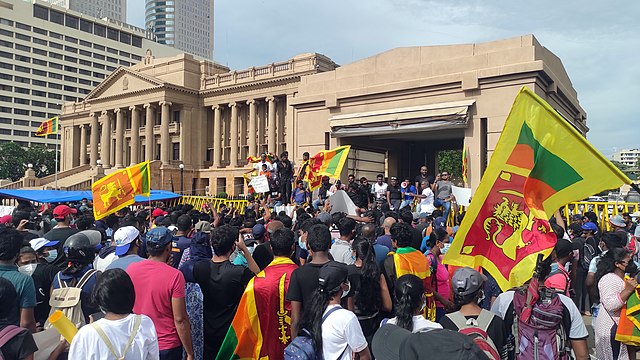
Human Rights Watch (HRW) on April 7 condemned Sri Lanka’s proposed Anti-Terrorism Act, charging that it would allow authorities to systematically violate fundamental rights. HRW recommended that the government withdraw the bill until it can properly meet international human rights standards. The current text of the bill, intended to replace the 1979 Prevention of Terrorism Act, includes crimes such as property damage, theft or robbery under “terrorism” offenses, and would restrict the rights to freedom of assembly and speech. The bill further grants the police and military broad powers to detain people without evidence.
“The proposed counterterrorism law would permit the Sri Lankan government to continue to use draconian measures to silence peaceful critics and target minorities,” HRW South Asia director Meenakshi Ganguly stated. “The government’s crackdown on dissent and misuse of existing counterterrorism laws to arbitrarily detain protesters highlights the obvious risk of abuse.”
The International Commission of Jurists warned that the bill creates a new capital offense, despite the fact that Sri Lanka placed a moratorium on executions in 1976. Clause 4(1)(a) of the bill would introduce the death penalty for “the terrorism offence of murder.”
Similarly, Sri Lanka’s Centre for Policy Alternatives released a statement outlining the dangers of the proposed bill:
At a time when Sri Lanka is pursuing a path of recovery and rebuilding, it is critical to ensure that genuine measures are taken to address recurring practices of abuse and impunity and uphold the rule of law and democracy in Sri Lanka. Lawmakers must understand that given the history of abuse there is a long way to go in building public trust, and the onus is on the State to recover that trust by putting all the necessary checks and balances in place.
In 2023 Sri Lanka has already seen the suspension of parliament and the imposition of international sanctions on former presidents Gotabaya Rajapaksa and Mahinda Rajapaksa for rights violations during the country’s civil war.
From Jurist, April 7. Used with permission.
Photo: AntanO via Wikimedia Commons




